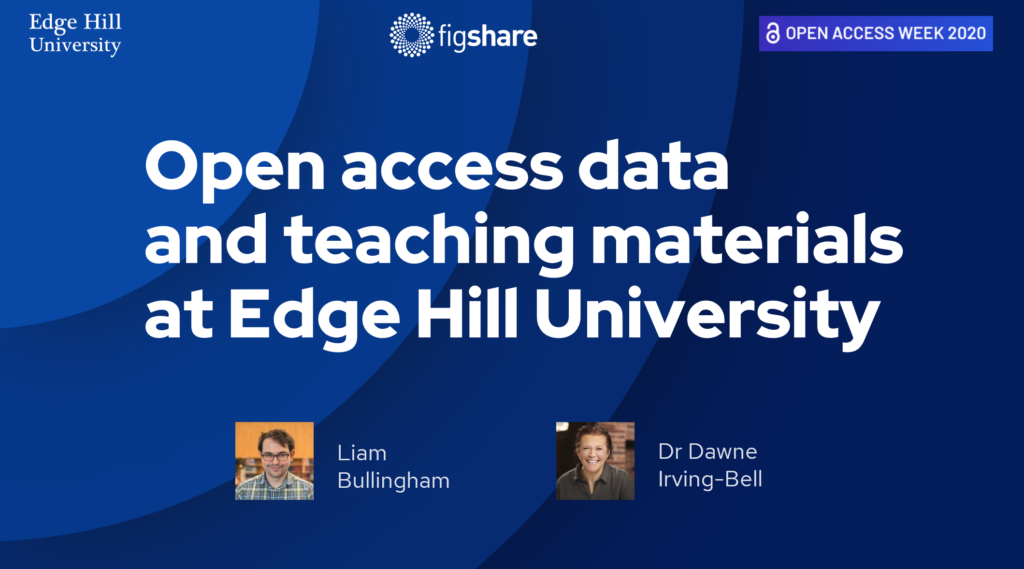
Open Access Week is celebrated by universities and researchers from around the world, aiming to make openness a default value for research and how we share it. It could not take place at a busier time for academic libraries but, ever year the community comes together to share great practice and talks by inspiring individuals who are seeking to bring greater equity to research.
What was everyone doing?
There were loads of great events, but the British Library’s fantastic ‘Open and Engaged‘ conference stood out. This focussed on inequities in scholarly communications and showed what we can do to level the playing field for global research, so voices from researchers all places and institutions can be heard and valued. One takeaway was the need for ‘denorthernization’ – that is, shifting the focus away from just research written in English and from authors in the Global North.
What did we do at Edge Hill?
The Library and Learning Services Research Support Team ran a virtual poster exhibition on Twitter and delivered a webinar on sharing research and teaching materials openly on Figshare.
The posters
Originally created and shared openly by Iowa State University for Open Access Week 2017, we thought these were too good not to share and revive! The exception is the poster for The Invisible Man (1933), also free to use.
Monday – ‘Bring your research back to life!’
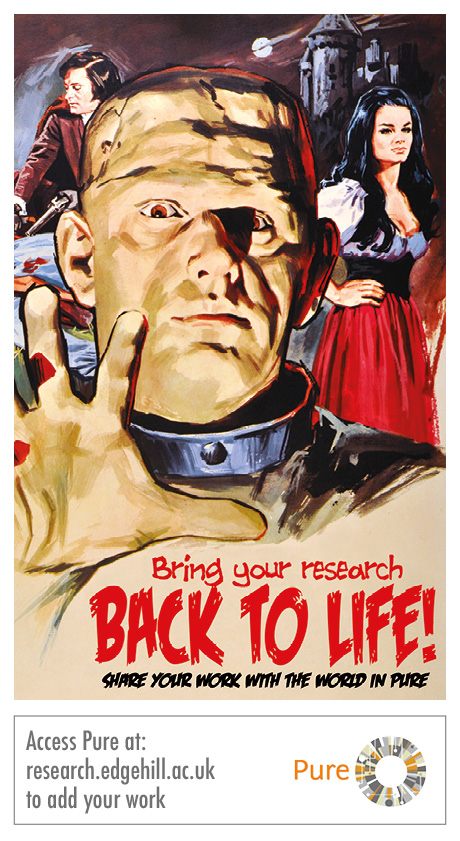
This poster promoted Edge Hill Pure, reminding researchers that by openly sharing your work, you can bring a whole new audience to it.
Tuesday – ‘the Invisible Researcher’
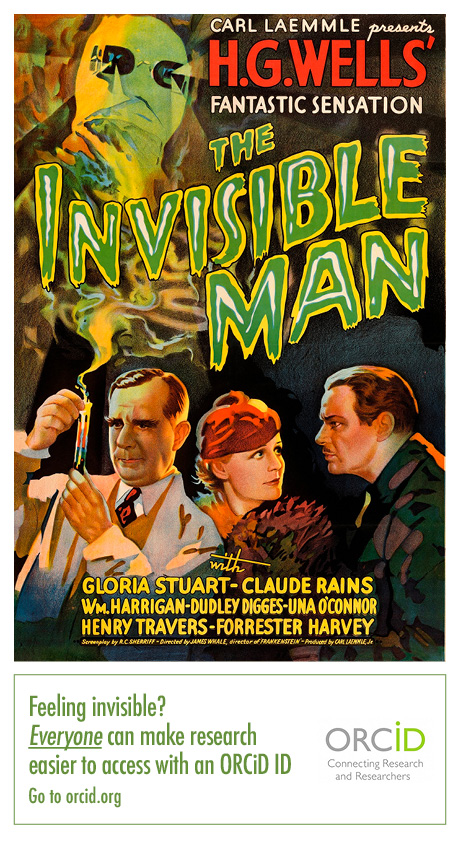
Here we highlighted ORCID, the research ID platform. This great initiative helps individuals with popular names stand out from the crowd and claim ownership of their research outputs.
Wednesday – ‘Don’t get held hostage by copyright’
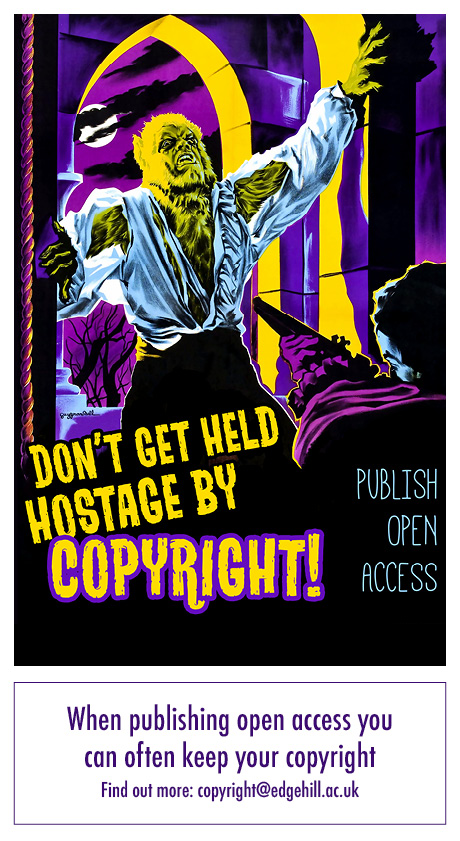
Nothing illustrates copyright better than a werewolf! With this tweet we wanted to show how researchers can keep their copyright rather than signing it over to the publisher and by doing so, they can share their outputs far more widely and openly.
Thursday– ‘Hybrid journals strike again!’

It can cost money to publish your research articles, leading to all kinds of inequity. When this happens, the richer universities can enjoy the benefits of open access, while less well funded institutions may have to publish research behind a paywall. This is changing though, and we summarise the new opportunities on offer on our new webpage: https://go.edgehill.ac.uk/pages/viewpage.action?spaceKey=ls&title=Open+access+options+for+researchers
Friday – ‘The future is open’
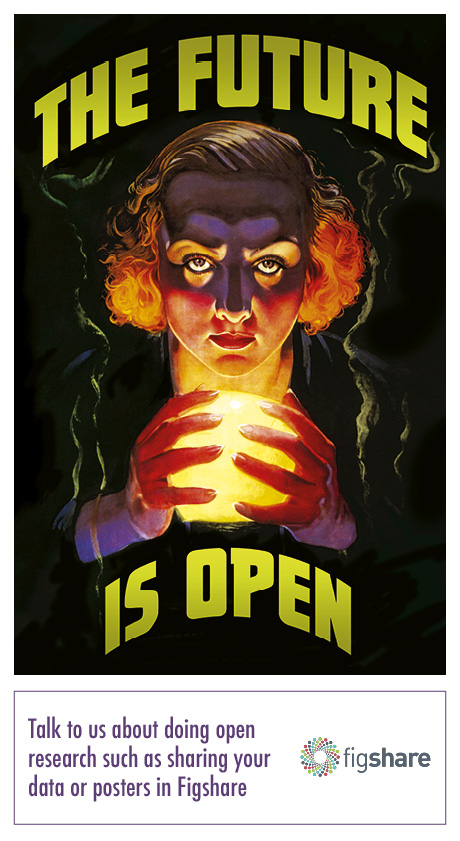
Like it or not, the open research movement (also known as ‘open science’) is gaining ground, and research funders are insisting on open research practices such as reproducibility and open access with zero embargoes. The future then, is looking bright for bringing true structural equity to research. Here we highlighted Edge Hill Figshare as a platform for making research outputs ore open.
The webinar
Together with Dr Dawne Irving Bell from the Centre for Learning and Teaching, Liam delivered a webinar on sharing data openly with Figshare and introducing the National Teaching Repository, an open way to share teaching materials. It was great to show what we’re doing to make both research and teaching more open and accessible and discuss the benefits witht he community. You can here see the webinar recording here: https://doi.org/10.6084/m9.figshare.13123106.v1
